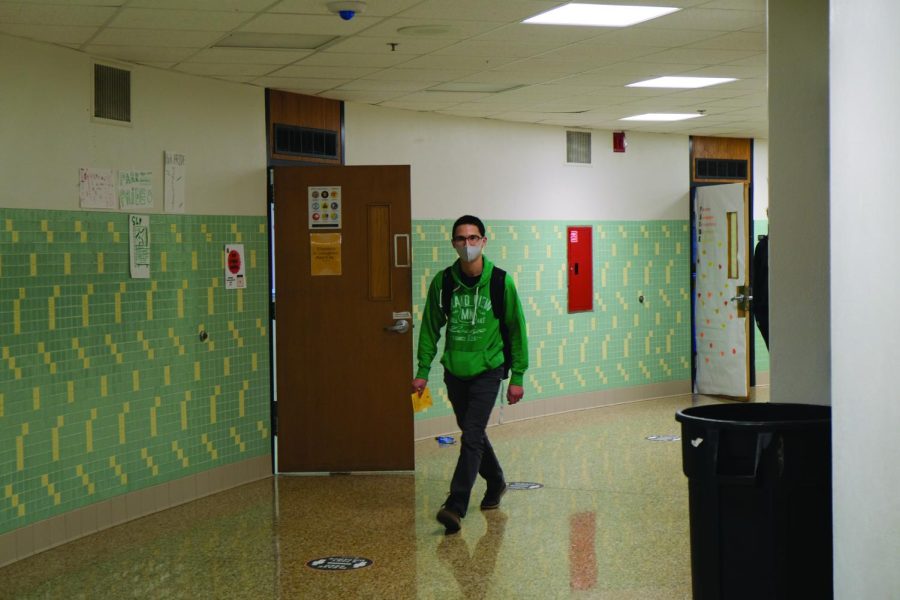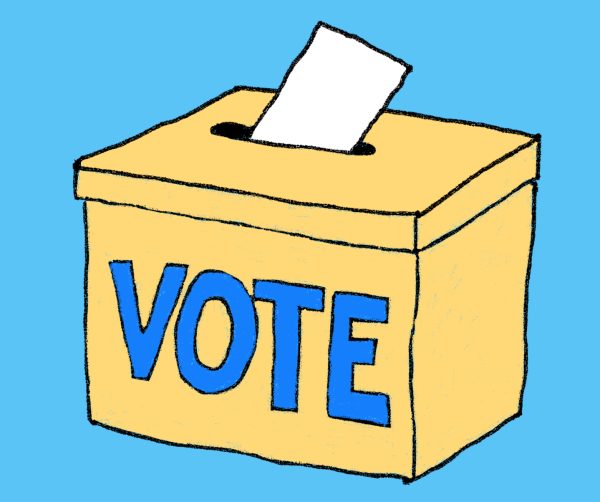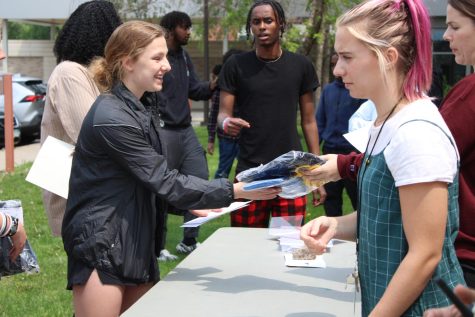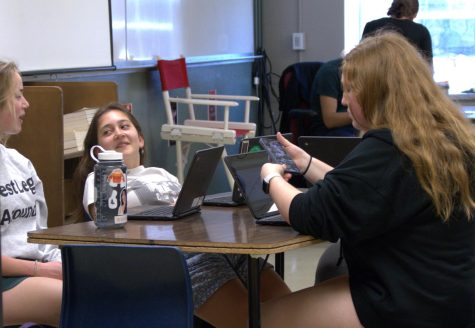Staff Editorial: Hallway policy deemed unpopular due to new restrictions
Administration should work with students to create a new policy
Senior Paris Lim walks down the hall with a pass Nov. 3. The Echo Editorial Board believes administration should collaborate with students to develop a new policy so they can work in the hallway as needed.
November 15, 2021
To encourage students to attend class, administration has created a policy that prohibits students from being in the hallway without a pass during class time. Students cannot work in the hallway during class time and must have a pass for being in the hall. The Echo Editorial Board believes the administration should collaborate with the student body to make a better policy.
Working in the hall can be beneficial for students who need a quiet place to work, or a break from the stress of the bustling classroom environment.Working in the hall can also be beneficial for making up a test or working on a group project.
Also, music classes utilize the hallway to practice their instruments. Previously, some teachers have allowed students to collaborate in the hallways. The Echo Editorial Board believes taking the option of working in the hall from students may make it more difficult for them to learn. Additionally, it’s a burden for teachers to write passes for students to leave class, while teaching.
This makes it unnecessarily difficult for students to go to the Media Center, Learning Lab or anywhere else. Students may miss out on access to valuable assets like printers and other devices.
Students still need the resources, whether or not they are allowed to use them. Individual teachers and administrators are reported to enforce the new policy to widely varying degrees. Some staff members demand to see students’ passes in the halls, and others don’t.
The new policy could result in a double standard for students of color. Due to unconscious bias, staff may be more suspicious that people of color don’t have a pass. This could result in students of color being asked to show their pass more often and experience more disruptions than white students. Moreover, the new policy could affect underclassmen more than upperclassmen.
Freshmen and sophomores are more likely to rely on buses for transportation to and from school. If a bus is late, underclassmen who are trying to get to class may be asked to show a pass, which is an unnecessary hindrance. The policy does not effectively increase attendance. Students may still skip class, especially if the policy’s enforcement is spotty.
The only consequence for breaking the rules of the policy is being marked absent, and that doesn’t motivate students to stay in class. The Echo Editorial Board believes the administration should consult with a group of diverse students about the new policy.
Students should provide feedback to administration in order to form a new policy. This would be in both the students and staff’s best interest, rather than the administration enforcing what it assumes would better benefit the most students.













